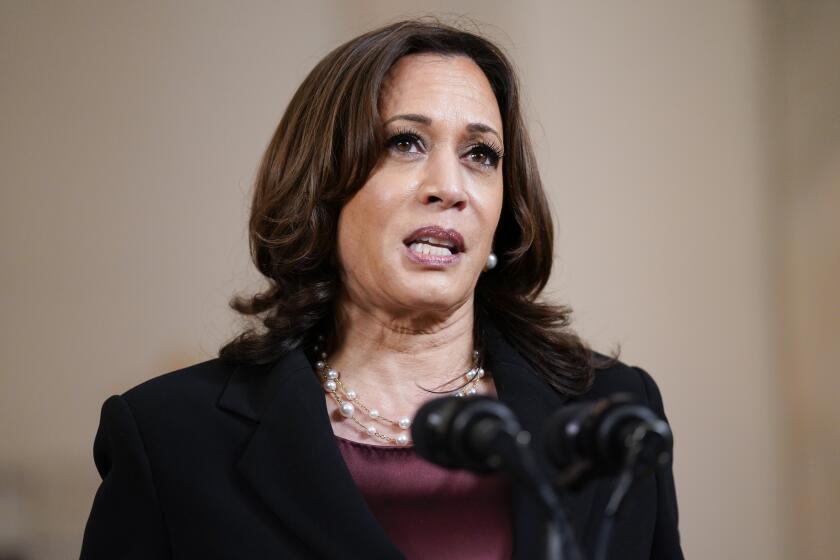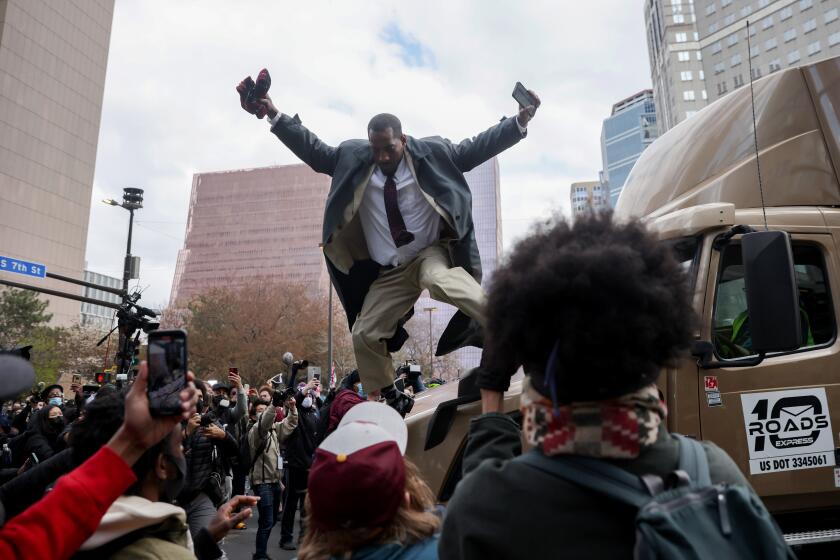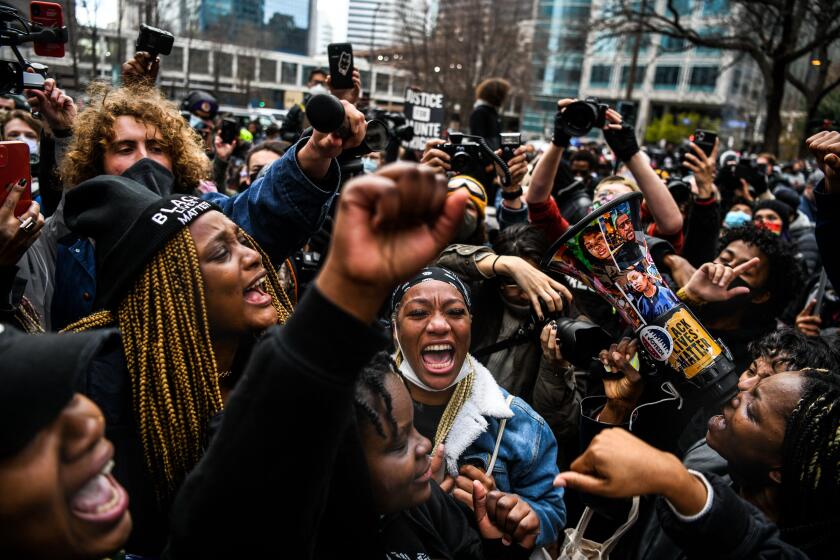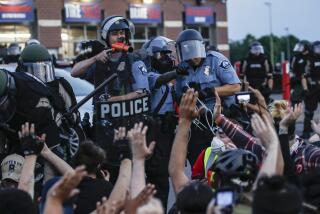Justice Department to investigate Minneapolis police after Chauvin verdict

U.S. Atty. Gen. Merrick Garland announced an investigation into Minneapolis police after an ex-officer was convicted of murdering George Floyd.
WASHINGTON — The Justice Department announced it was launching a broad investigation into the Minneapolis Police Department on Wednesday, a day after a white former officer was convicted of murdering George Floyd, a Black man, while arresting him last year. Floyd’s death sparked a wave of nationwide protests over racial discrimination and the use of force in policing, and a broader national conversation about race and justice in the United States.
Atty. Gen. Merrick Garland announced the start of the inquiry in a video address from the Justice Department, saying the agency’s Civil Rights Division will conduct what is known as a “patterns and practice” inquiry that will scrutinize nearly all aspects of how the Minneapolis police operate, including recruitment and any use of excessive force.
Such civil investigations often take months. They can result in legal agreements, known as consent decrees, that are overseen by federal judges who ensure a police department follows through on mandated reforms.
Acknowledging that most “police officers do their difficult jobs honorably and lawfully,” Garland said that systemic racism and unconstitutional policing practices will be difficult to address and root out.
“Justice is sometimes slow, sometimes elusive and sometimes never comes,” the attorney general said. “The challenges we face are deeply woven into our history. They did not arise today, or last year. Building trust between community and law enforcement will take time and effort by all of us.”
Garland rescinded a Trump-era policy last week that essentially blocked the department from making such legal agreements — setting the stage for the Minneapolis investigation and probably others. Former Justice Department attorneys have said such inquiries and the resulting consent decrees are among the best ways to address unconstitutional policing practices.
Former Police Officer Derek Chauvin’s conviction for murdering George Floyd has reenergized President Biden and Washington lawmakers aiming for reform.
The Justice Department launched 25 such investigations during the Obama administration, resulting in 14 consent decrees. Such oversight can be costly and last for years. The Los Angeles Police Department entered such a decree in 2001 that went on for more than a decade and cost about $300million.
Garland’s announcement came just one day after former Minneapolis Police Officer Derek Chauvin was found guilty of second-degree murder and manslaughter in Floyd’s death in May. The Justice Department is conducting a separate criminal investigation into whether police violated Floyd’s civil rights.
A Justice Department spokesman, Anthony Coley, declined to comment on either the civil or the criminal inquiry before Garland’s announcement.
Reaction to verdict in death of George Floyd
The civil rights investigation will examine the inner workings of the Minneapolis police force, focusing on recruitment, training and patrol policies.
While the Trump administration and police unions held unfavorable views of such broad investigations and consent decrees, police chiefs have generally welcomed them because they ensure reforms are implemented by city leaders, who had sometimes argued that making such changes would be too costly. Police chiefs can point to judicial orders mandating reforms, as well as to scathing reports by court-appointed monitors, if their departments move too slowly to address concerns.
Floyd died during his arrest on suspicion of using a counterfeit $20 bill at a corner store. After he flailed as police tried to put him in a squad car, officers put the handcuffed man on the ground and held him there.
A bystander recorded Chauvin pressing his knee to Floyd’s neck for more than nine minutes. Floyd died after pleading for Chauvin to get off, saying “I can’t breathe” — a rallying cry at Black Lives Matter protests.
Across the country, people began to reflect on what it meant for a white officer to be convicted in the killing of a Black man.
Garland’s announcement followed comments Tuesday night by President Biden, whose administration has said it will address racial disparities in the criminal justice system.
“‘I can’t breathe.’ Those were George Floyd’s last words,” Biden said Tuesday. “We can’t let those words die with him. We have to keep hearing those words. We must not turn away. We can’t turn away.”
The Associated Press contributed to this report.
More to Read
Get the L.A. Times Politics newsletter
Deeply reported insights into legislation, politics and policy from Sacramento, Washington and beyond. In your inbox three times per week.
You may occasionally receive promotional content from the Los Angeles Times.














